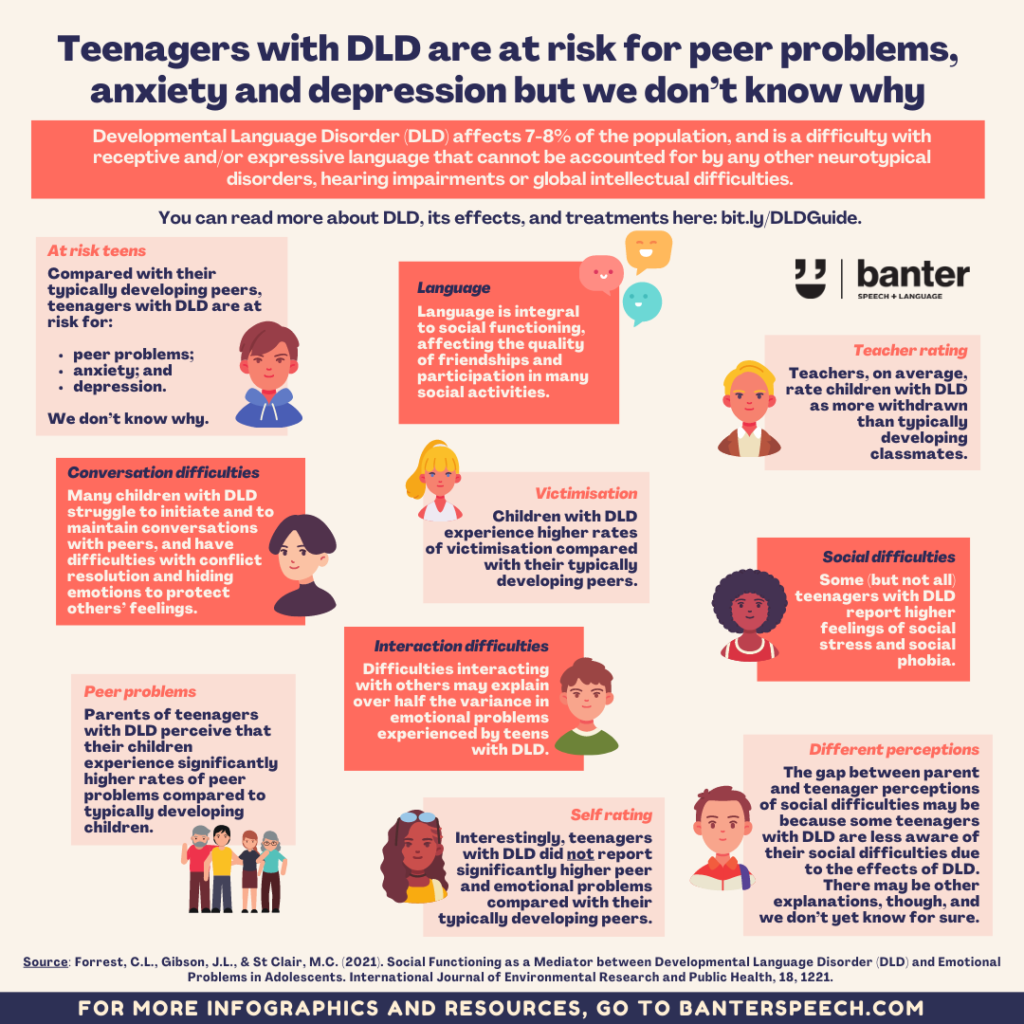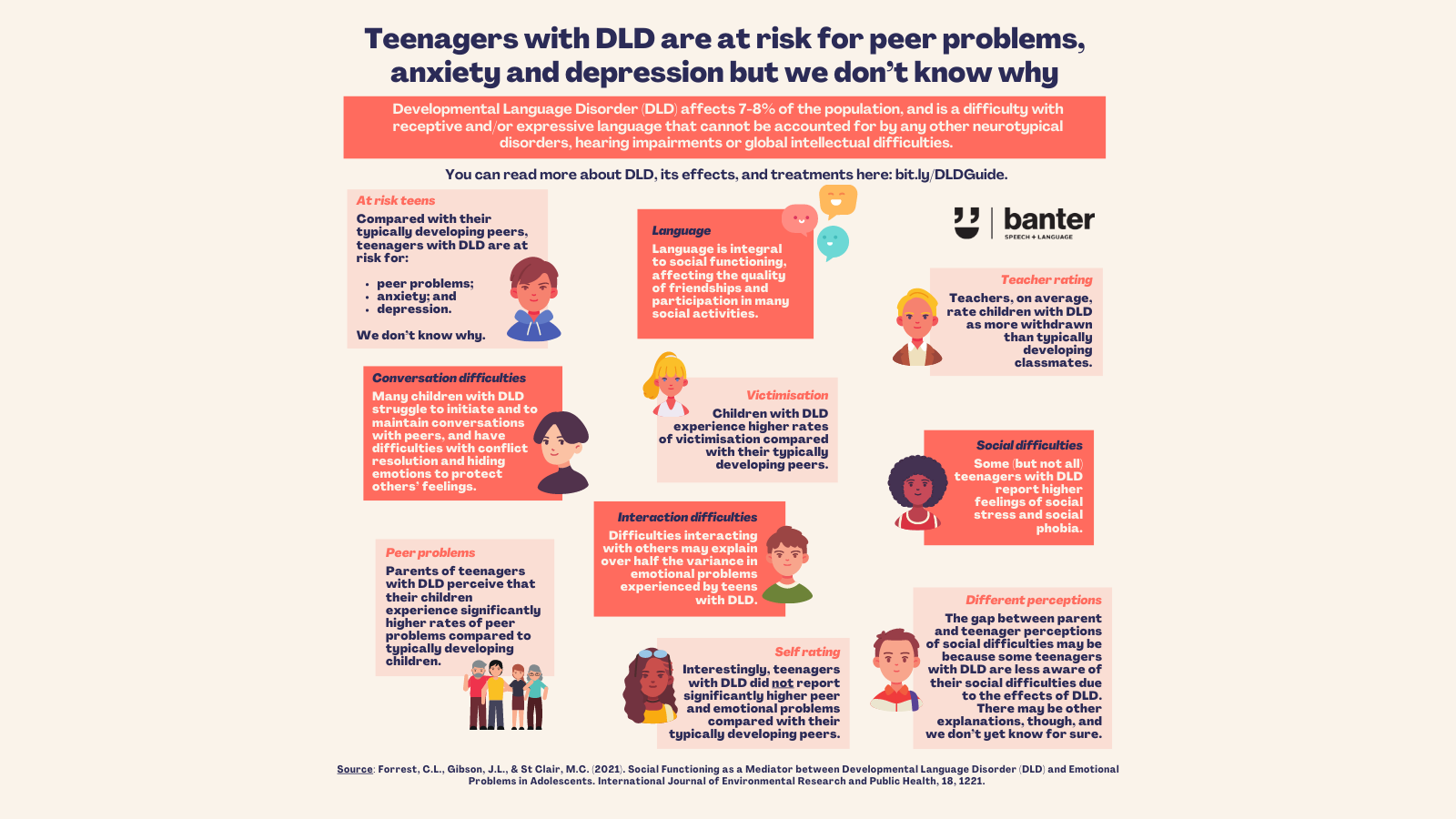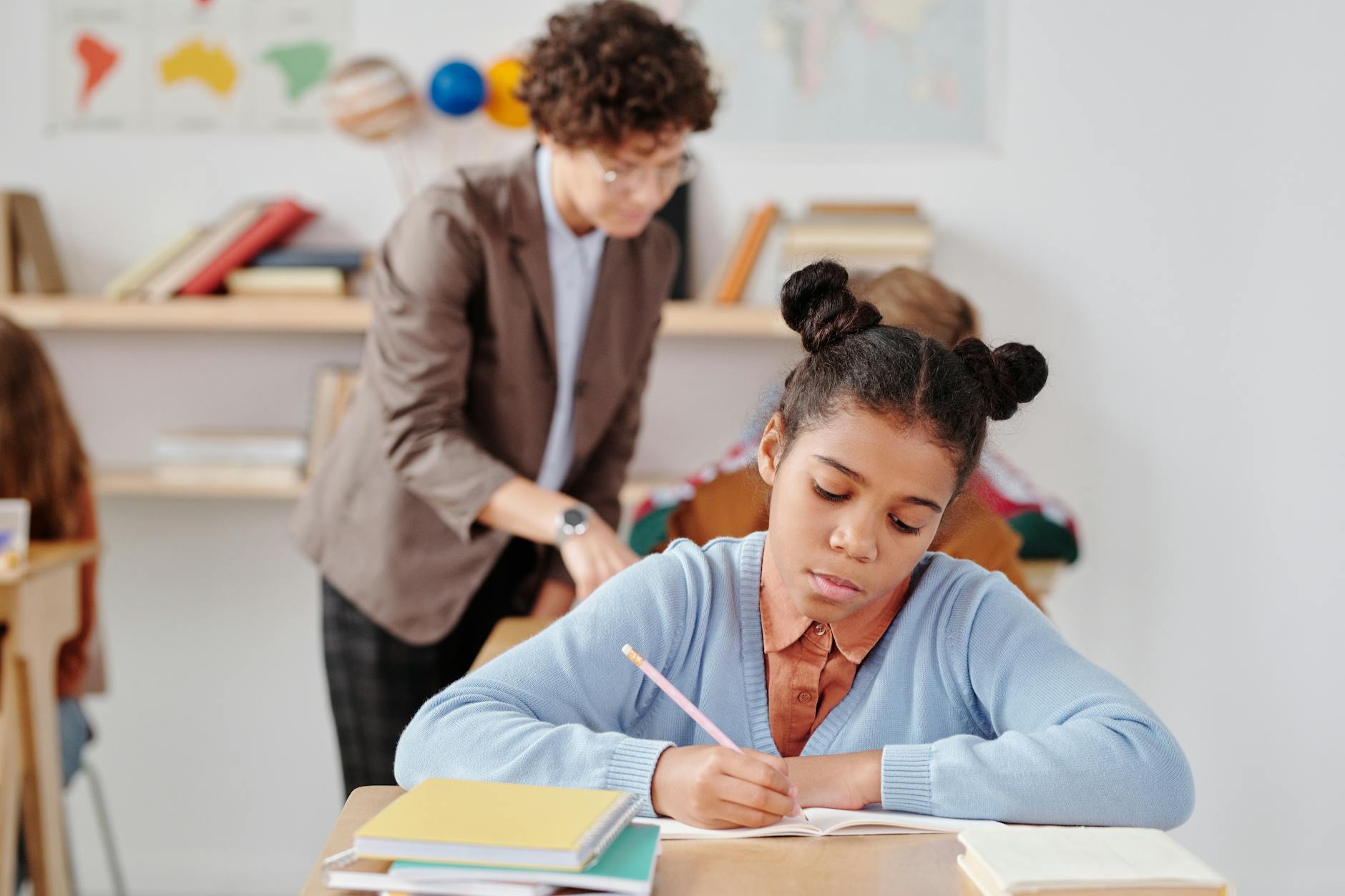Teenagers with DLD are at risk for peer problems, anxiety and depression but we don’t know why
Developmental Language Disorder (DLD) affects 7-8% of the population, and is a difficulty with receptive and/or expressive language that cannot be accounted for by any other neurotypical disorders, hearing impairments or global intellectual difficulties.
You can read more about DLD, its effects, and treatments here in our DLD Guide for Families.

Compared with their typically developing peers, teenagers with DLD are at risk for:
- peer problems;
- anxiety; and
- depression.
We don’t know why.
Language is integral to social functioning, affecting the quality of friendships and participation in many social activities.
Teachers, on average, rate children with DLD as more withdrawn than typically developing classmates.
Many children with DLD struggle to initiate and to maintain conversations with peers, and have difficulties with conflict resolution and hiding emotions to protect others’ feelings.
Children with DLD experience higher rates of victimisation compared with their typically developing peers.
Some (but not all) teenagers with DLD report higher feelings of social stress and social phobia.
Parents of teenagers with DLD perceive that their children experience significantly higher rates of peer problems compared to typically developing children.
Difficulties interacting with others may explain over half the variance in emotional problems experienced by teens with DLD.
Interestingly, teenagers with DLD did not report significantly higher peer and emotional problems compared with their typically developing peers.
The gap between parent and teenager perceptions of social difficulties may be because some teenagers with DLD are less aware of their social difficulties due to the effects of DLD. There may be other explanations, though, and we don’t yet know for sure.
For an accessible version of our infographic, watch our video:
Source: Forrest, C.L., Gibson, J.L., & St Clair, M.C. (2021). Social Functioning as a Mediator between Developmental Language Disorder (DLD) and Emotional Problems in Adolescents. International Journal of Environmental Research and Public Health, 18, 1221.
Related articles:
- How to help our secondary teachers support teenagers with language disorders at school
- Your right to know: long-term social effects of language disorders
- 24 practical ways to help school-aged children cope with language and reading problems at school and home
- 10 great words to teach young high-schoolers (and why) – with brilliant free resources!

Hi there, I’m David Kinnane.
Principal Speech Pathologist, Banter Speech & Language
Our talented team of certified practising speech pathologists provide unhurried, personalised and evidence-based speech pathology care to children and adults in the Inner West of Sydney and beyond, both in our clinic and via telehealth.








